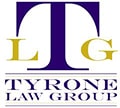Nobody wants their family’s final recollections of them to be a dispute over their assets in probate court. Unfortunately, far too many families find themselves in contentious estate administration processes following the death of a loved one.
While this is the case, yours doesn’t have to be one of them. Use these estate planning methods to avoid future litigation. This manner, your assets will reach your family faster, without becoming stuck in a probate battle with a probate lawyer:
Start the process early while you are still healthy
One of the most common reasons why family members file Will challenges is “lack of capacity.” This means that the petitioner believes the individual who drafted the Will was not of sound mind when the document was signed.
To avoid probate disputes, begin estate planning as early as possible, while you are still healthy. This will keep family members from questioning your legal competence and make it more difficult to oppose your wishes later on.
Minimize your probate estate.
Another estate planning trick for lowering the danger of litigation is to limit or even abolish your probate estate. To avoid probate court, consider using a revocable living trust, beneficiary designations, jointly owned assets, and other estate planning options.
By withdrawing assets and monies from your probate estate, you make it more difficult and financially risky for an heir to reverse your estate planning by putting more assets in the hands of your trustee and intended beneficiaries.
Communicate your estate planning strategy with the beneficiaries
Probate litigation is frequently initiated when a deceased person’s natural heirs are taken aback by the language in their Will or trust. When a spouse or child is omitted without warning, or the distribution of assets alters, those who receive less are more likely to submit a petition to have the Will set aside.
As a result, one estate planning technique for avoiding probate litigation is to simply convey your desires to beneficiaries and family members beforehand.
This is especially crucial if you decide to deliberately disinherit a natural heir. Open communication about your desires will lessen the likelihood of a potential beneficiary becoming surprised after your death.
It also makes it more difficult for the successor to claim that their omission was the product of improper influence.
Update your estate plan.
Once your estate plan is complete, you should review it every few years to ensure that everything is up to date. You may need to add beneficiaries owing to births or weddings, remove them due to deaths or divorce, or change the distribution of your assets to account for property purchased or sold in the meantime.
It’s also critical to stay current on legal developments. Keeping your estate plan up to date reduces the likelihood of litigation by eliminating ambiguity.
If a Will has not been updated in a long time, it can be difficult to decide whether a car award applies to its successor, or how a bank account should be divided if the balance is significantly less than the amount mentioned in the Will, for example.
A reasonable rule of thumb is to review your estate plan for revisions every 3-5 years, or whenever there is a birth, wedding, divorce, or funeral in the family.
Have the vital documents
Most people think of estate planning as something that occurs after death, but a solid estate plan will also contain durable powers of attorney (DPOA), a healthcare surrogate, and possibly a living will.
These estate planning contracts take effect when you are no longer capable of making financial or healthcare decisions for yourself.
Executing these forms while you are still healthy is an important estate planning approach to help your family avoid probate court since they eliminate the requirement for the probate court to appoint a Guardian or Conservator to manage your estate.
Distribute your estate plan documents to the right people
You have the right to keep your trust paperwork and other important aspects of your estate plan private.
Other paperwork, such as beneficiary designations and powers of attorney, should be issued to the professionals in your life to ensure that your care and the facility’s services are uninterrupted. You should submit these materials to:
- Each agent, personal representative, healthcare provider, or power of attorney designated in their specific documents
- Your bank, credit union, or financial institution (DPOAs and beneficiary designations).
- Financial advisors, accountants, and stock brokers (DPOAs, beneficiary designations, and some trust forms)
- Your healthcare providers and chosen hospital (HIPAA releases)
- You should also have a copy of your whole estate plan in a safe place at home, and your attorney should have a copy as well.
Discuss the estate plan with a reputable attorney.
While estate planning is about carrying out your intentions and should always represent your goals, it is wise to seek assistance with the actual drafting process.
Before signing any contracts, consult with an expert estate administration lawyer about your estate planning strategy.
This allows you to detect potential probate lawsuit risks early on and make changes to safeguard your family from a time-consuming and taxing probate litigation procedure.
When you are hiring an estate planning attorney Upper Marlboro, hire an experienced one who can handle both estate planning and probate litigation.
Since the professional understands what can cause a Will challenge and how to avoid one, they will advise you on what to do and what to avoid.
All you need to do is to research the attorneys in your area. Many people go for the first attorney they come across. This is wrong.
The best way to go about it is to get in touch with five or more contractors and interview them. You should only consider hiring the most qualified.
You should meet the most qualified people, discuss the many estate planning techniques available, and assist you in making decisions that will limit the likelihood of your family becoming involved in disputed probate litigation.
